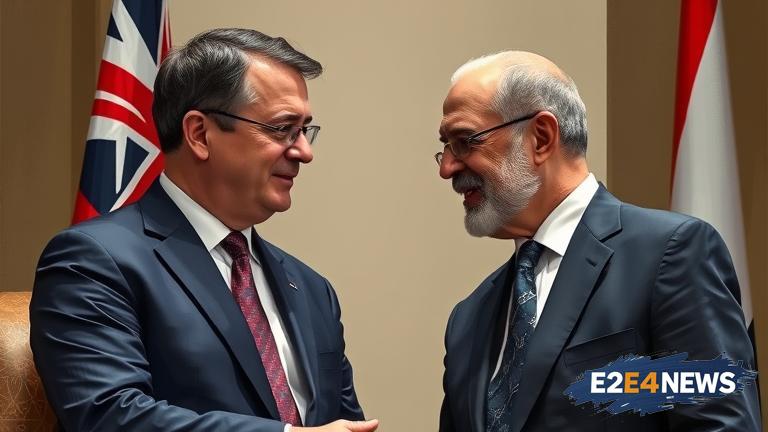The meeting between Australian Prime Minister Anthony Albanese and Palestinian President Mahmoud Abbas comes at a time of heightened tensions in the region. The two leaders discussed the ongoing conflict between Israel and Palestine, with Albanese reiterating Australia’s commitment to a two-state solution. Abbas expressed his concerns about the recent escalation of violence and the impact it has had on the Palestinian people. Albanese also emphasized the importance of a negotiated settlement and the need for both parties to return to the negotiating table. The meeting was seen as an opportunity for the two leaders to strengthen ties between Australia and Palestine. Albanese’s visit to the region is part of a broader effort to engage with Middle Eastern leaders and to promote peace and stability in the region. The conflict between Israel and Palestine has been ongoing for decades, with both sides claiming the right to the same land. The international community has long recognized the need for a two-state solution, but progress has been slow. The recent escalation of violence has raised concerns about the prospects for peace. Albanese’s meeting with Abbas was seen as a positive step towards promoting dialogue and understanding between the two sides. The Australian Prime Minister also met with Israeli leaders during his visit, where he emphasized the need for a negotiated settlement and the importance of protecting human rights. The situation in the Middle East remains complex and challenging, with many different factions and interests at play. Despite the challenges, there is a growing recognition of the need for a peaceful resolution to the conflict. The international community has a critical role to play in promoting peace and stability in the region. Albanese’s visit to the Middle East is part of a broader effort to engage with regional leaders and to promote Australian interests. The meeting between Albanese and Abbas was also seen as an opportunity to discuss economic cooperation and development between Australia and Palestine. The two leaders discussed the potential for increased trade and investment between the two countries. Albanese also announced plans to increase Australian aid to Palestine, in an effort to support the Palestinian people and to promote economic development. The meeting was widely covered in the media, with many outlets highlighting the significance of the talks. The Australian government has faced criticism in the past for its handling of the Israel-Palestine conflict, but Albanese’s visit was seen as a positive step towards promoting peace and stability in the region. The situation in the Middle East remains volatile, but there is a growing sense of optimism about the prospects for peace. The international community will be watching closely as the situation continues to unfold. In the meantime, Albanese’s meeting with Abbas has been seen as a positive step towards promoting dialogue and understanding between the two sides. The Australian Prime Minister’s commitment to a two-state solution has been welcomed by many, and his efforts to promote peace and stability in the region are likely to be closely watched in the coming months. As the situation in the Middle East continues to evolve, it is clear that the international community has a critical role to play in promoting peace and stability. Albanese’s visit to the region is part of a broader effort to engage with regional leaders and to promote Australian interests. The meeting between Albanese and Abbas has been seen as a positive step towards promoting dialogue and understanding between the two sides, and it is likely to be an important milestone in the ongoing efforts to promote peace and stability in the region.
